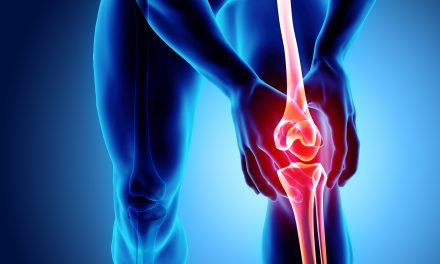Arthritis, a common condition that encompasses a range of joint diseases, can be a significant source of discomfort and disability for individuals. The two most prevalent types of arthritis, osteoarthritis, and rheumatoid arthritis, bring about symptoms such as joint pain and stiffness, which can severely impact the quality of life. In the quest for relief, many turn to supplements as a potential way to manage their symptoms.
While no supplement can cure arthritis, certain vitamins, minerals, and natural compounds have been found to support joint health and reduce inflammation. The efficacy of these supplements varies among individuals, and it’s important for those with arthritis to choose products that have been tested for quality and purity. Moreover, it is essential to consider the interaction of supplements with other medications, and to consult with a healthcare provider before starting any new supplement regimen.
Key Takeaways
- Arthritis symptoms like pain and stiffness can be managed with the help of certain supplements.
- Choosing high-quality supplements and checking for medical interactions is critical for safety.
- Consultation with a healthcare provider is recommended before beginning any supplement use.
Understanding Arthritis
Arthritis encompasses a range of joint diseases and conditions characterized by inflammation and pain. It is a leading cause of disability worldwide, affecting a person’s ability to perform daily activities.
Types of Arthritis
Osteoarthritis and rheumatoid arthritis are the two most common forms. Osteoarthritis involves the degradation of cartilage, the cushioning material at the end of bones, which leads to bones rubbing together and causing pain and stiffness. On the other hand, rheumatoid arthritis is an autoimmune disorder where the body’s immune system mistakenly attacks the joints, leading to inflammation and joint damage.
- Osteoarthritis: Typically affects older adults and can involve joints like the:
- Knees
- Hips
- Lower back
- Neck
- Small joints of the fingers
- Rheumatoid Arthritis: Can occur at any age and often affects joints symmetrically, such as:
- Wrists
- Hands
- Ankles
- Elbows
Symptoms and Diagnosis
The symptoms of arthritis depend on the type but generally include:
- Joint pain: Persistent discomfort, which may be sharp or dull
- Stiffness: Particularly notable upon waking up or after periods of inactivity
- Swelling: The area around the affected joint can become inflamed
Diagnosing arthritis usually entails a combination of medical history review, physical examinations, and diagnostic tests, which may include:
- Physical Exam: Checking for swelling, redness, and warmth
- Imaging Tests: X-rays, MRI, or CT scans to assess joint damage
- Blood Tests: Especially for rheumatoid arthritis to look for specific antibodies
Early and accurate diagnosis is essential for managing arthritis effectively and minimizing joint damage.
Role of Supplements in Managing Arthritis
In the management of arthritis, supplements play a supportive role, often complementing traditional medications. They are considered a natural approach to potentially reduce inflammation and pain associated with arthritis.
- Vitamin D: Essential for calcium absorption, it supports joint health.
- Omega-3 Fatty Acids: Found in fish oil, these fatty acids could help diminish joint pain and stiffness.
- Glucosamine and Chondroitin: These two supplements are commonly used to improve joint function and slow the progression of osteoarthritis.
Patients find that certain supplements, such as glucosamine and chondroitin, might offer relief from symptoms when traditional medications are not enough. Furthermore, omega-3 fatty acids are linked with anti-inflammatory properties that may be particularly beneficial for rheumatoid arthritis sufferers.
Calcium and Vitamin D are also integral when considering bone health and arthritis management; the former is vital for bone strength, while the latter aids calcium absorption. Failure to maintain adequate levels might lead to increased joint pain and higher fracture susceptibility.
It is crucial to understand that while supplements can aid in managing arthritis symptoms, they are not a cure. Individuals should consult healthcare providers to ensure that the chosen supplements do not interact with other medications and are suitable for their particular circumstances.
Efficacy of Common Supplements
When considering supplements for arthritis pain, it is important to examine scientific findings about their effectiveness. The following subsections delve into the current evidence surrounding some of this area’s most commonly used supplements.
Glucosamine and Chondroitin
Research into glucosamine and chondroitin supplementation suggests mixed outcomes. They are thought to support joint health by aiding cartilage repair and reducing inflammation. A number of studies have shown that taking glucosamine and chondroitin can result in a modest reduction in osteoarthritis pain for some people, though the benefits may not be significant for everyone.
Omega-3 Fatty Acids
Omega-3 fatty acids are widely regarded for their anti-inflammatory properties. The efficacy of omega-3 supplements, often derived from fish oil, is supported by evidence indicating that they can help reduce joint stiffness and pain related to rheumatoid arthritis. The American Heart Association also supports the use of omega-3 fatty acids for heart health, which can be beneficial for people with arthritis.
Curcumin and Turmeric
Curcumin, the active compound in turmeric, is another supplement garnering attention for its potential to alleviate arthritis-related symptoms. Although curcumin is believed to have potent anti-inflammatory effects, its bioavailability is relatively low; thus, supplementation often requires higher doses or the addition of other substances like piperine to enhance absorption. Some research points to curcumin’s ability to decrease pain and inflammation in arthritis, though more studies are needed to fully confirm these findings.
Vitamins and Minerals for Arthritis Support
Arthritis patients often turn to vitamins and minerals to support joint health and reduce pain. These nutrients can play a role in maintaining bone strength and immune function, which are vital considerations for those with this condition.
Vitamin D and Calcium
Vitamin D is crucial for calcium absorption and maintaining bone density and structural integrity. Individuals with arthritis should ensure they get enough vitamin D through sunlight exposure or supplementation to optimize calcium uptake. The Arthritis Foundation suggests that adequate levels of these nutrients work in tandem to preserve bone strength and may help prevent the onset or worsening of osteoarthritis.
- Recommended Daily Amount of Vitamin D: 15 mcg (600 IU) for adults up to age 70; 20 mcg (800 IU) for adults over 70
- Recommended Daily Amount of Calcium: 1,000 mg for adults up to age 50; 1,200 mg for women over 50 and men over 70
Vitamin C and Other Antioxidants
Vitamin C is pivotal for collagen formation, the foundation of joint tissue, and a powerful antioxidant to fight off harmful free radicals that can contribute to inflammation and joint damage. Foods rich in vitamin C, such as citrus fruits and leafy greens, can be an essential part of a diet aiming to reduce arthritis symptoms. Along with vitamin C, other antioxidants like vitamin E, selenium, and bioflavonoids also protect the body’s tissues from oxidative stress.
- Vitamin C: Helps with collagen formation and immune system function
- Other Antioxidants: Aid in reducing oxidative damage to joints and tissues
It is essential that individuals with arthritis talk to healthcare providers before starting any supplementation, as some supplements can interact with medications or may not be suitable for everyone.
Natural Anti-Inflammatory Options
Individuals seeking to manage arthritis pain often turn to natural supplements that can help reduce inflammation. These options include concentrated sources of beneficial nutrients like fish oil and herbal remedies known for their anti-inflammatory properties.
Fish Oil and Fatty Acids
Fish oil, rich in omega-3 fatty acids, notably EPA and DHA, has been widely recognized for its ability to reduce inflammation. Research indicates that these fatty acids can have a significant impact on reducing the pain associated with rheumatoid arthritis and other inflammatory conditions. Incorporating fish oil supplements can be an effective strategy in an overall management plan for arthritis pain.
Herbal Remedies
Herbal supplements are another avenue by which individuals may find relief from arthritis pain. Various herbs, such as Boswellia and bromelain, show promise due to their anti-inflammatory effects. For instance, Boswellia, also known as Indian frankincense, has compounds that may help decrease inflammation contributing to conditions like osteoarthritis. Additionally, bromelain—a compound found in pineapples—has been linked to reduced inflammation and may support joint health. The use of herbal supplements should be considered as part of a comprehensive approach to managing arthritis.
Lifestyle and Dietary Considerations
When managing arthritis, dietary choices and exercise routines play pivotal roles. Adequate nutrition and physical activity are essential for maintaining joint health and overall well-being within the arthritis community.
Impact of Nutrition on Arthritis
Nutrition has a direct influence on the severity and management of arthritis symptoms. A diet rich in anti-inflammatory foods can aid in reducing joint inflammation and pain. For instance, the inclusion of omega-3 fatty acids, found in cold-water fish or through fish oil supplements, has been acknowledged for its benefits in reducing joint swelling and morning stiffness. Foods such as salmon, tuna, and sardines, or supplements like fish oil, are often recommended to support joint health.
Furthermore, incorporating fruits and vegetables that provide antioxidants may also help reduce oxidative stress associated with inflammation in arthritis. A diet that includes leafy greens, nuts, and berries is also beneficial. Moreover, certain dietary supplements might offer relief; glucosamine and chondroitin are popular among individuals with arthritis to aid in maintaining joint health.
Exercise and Joint Health
Exercise is crucial for those with arthritis. It helps maintain joint flexibility and muscle strength, which in turn supports the joints and reduces the burden on them. Low-impact activities such as swimming, bicycling, or walking can be particularly beneficial. They increase endurance and strength without placing undue stress on the joints. It’s important to consult with a healthcare provider or a physical therapist to tailor an exercise routine that meets individual needs within the arthritis community.
In addition to regular exercise, maintaining a healthy weight is important to minimize the pressure on weight-bearing joints. Consequently, one sees that exercise contributes not just to joint health but to managing overall arthritis symptoms more effectively.
Medical Interactions and Safety
When considering supplements for arthritis pain management, it’s crucial to be aware of how they might interact with prescription medications and their potential side effects. Consulting a pharmacist or healthcare provider is recommended to ensure safe usage.
Supplements vs. Prescription Medication
Supplements that are marketed for arthritis pain relief can sometimes interact with prescription drugs, especially blood thinners or non-steroidal anti-inflammatory drugs (NSAIDs). For instance, certain supplements like fish oil have blood-thinning properties and, when taken with prescription blood thinners, may increase the risk of bleeding. Similarly, accessories such as glucosamine could potentially interfere with the effectiveness of other medications. It is essential to disclose all supplement use to a healthcare provider.
Potential Side Effects
While supplements may offer pain-relieving benefits, they can also come with side effects. For example:
- Chondroitin: It may cause nausea, diarrhea, and hair loss.
- Curcumin: Can act as a blood thinner and cause stomach upset.
- Boswellia serrata: Has the potential to cause liver issues and gastrointestinal problems.
Understanding the risks and possible drug interactions can prevent adverse health effects. If experiencing side effects, one should discontinue use and seek medical advice.
Selecting Quality Supplements
When dealing with arthritis pain, selecting supplements that are effective, safe, and of high quality is crucial. Understanding how to read supplement labels and evaluate FDA approval, as well as considering cost and accessibility, can guide consumers in making informed decisions.
Reading Labels and FDA Approval
Supplements are not regulated by the Food and Drug Administration (FDA) in the same way as prescription drugs. However, they must still contain truthful labeling and product information. Consumers should look for supplements with evidence of third-party testing by organizations like USP (United States Pharmacopeia) or NSF International. These seals of approval indicate that the product contains the ingredients listed on the label, is free of harmful contaminants, and has been manufactured correctly.
Cost and Accessibility
Supplements can vary widely, and a higher price does not always equate to better quality. Consumers should compare products based on the price per dose while also considering the concentration and bioavailability of active ingredients. Accessibility is equally essential; a cost-effective supplement regimen is readily available for consistent use. Generic options may offer the same ingredients at a more affordable price and are often found at local pharmacies and health food stores.
Arthritis Care and Prevention
Arthritis management requires a combination of treatments and informed decisions. Adequate care and prevention strategies can reduce symptoms and improve the quality of life for arthritis patients.
Conservative Treatments
Conservative treatments for arthritis focus on managing symptoms and slowing the progression of joint damage. Medications such as nonsteroidal anti-inflammatory drugs (NSAIDs) can alleviate pain and reduce inflammation. Studies suggest that certain supplements, including fish oil and glucosamine, may be beneficial for those seeking alternatives, as detailed in the Arthritis Foundation’s guide. In addition to pharmaceuticals, physical therapy plays a crucial role in maintaining joint flexibility and strength.
Lifestyle modifications should be part of any arthritis care plan. Regular, low-impact exercises like swimming or cycling can keep joints flexible. Meanwhile, maintaining a healthy weight can prevent extra stress on the joints. Moreover, other supportive interventions like heat/cold therapy and ergonomic tools aid in managing pain.
Staying Informed and Consulting Experts
Individuals need to stay informed about their condition to make educated decisions regarding their health. The Arthritis Foundation provides valuable resources and information about the latest research and treatment options. They also offer services and support to those affected by arthritis.
Consulting a doctor regularly allows for monitoring the condition’s progression and adjusting treatment plans accordingly. A healthcare professional can also refer patients to specialists for additional management options or to participate in clinical trials. Patients should proactively ask questions and seek advice from their healthcare providers to understand their diagnosis and all available treatments fully.
Beyond Supplements: Complementary Therapies
While supplements can play a role in managing arthritis pain, one should also consider incorporating complementary therapies into their care regimen. Individuals with arthritis may find added relief through a variety of non-supplemental strategies.
Exercise is essential for maintaining joint function and reducing stiffness. Regular activity helps to strengthen the muscles around the joints, enhancing support and mobility. Opt for low-impact exercises like swimming, walking, or cycling.
Physical Therapy provides targeted exercises and professional guidance to preserve joint health and prevent further damage. Therapists may utilize massage, heat treatment, and tailored exercise plans.
Occupational Therapy assists individuals in adapting their home and work environments to minimize strain on affected joints. An occupational therapist can suggest specialized tools and devices to aid daily activities.
People should not overlook the importance of a supportive community. Arthritis support groups offer the chance to connect with others facing similar challenges, share experiences, and learn about different coping methods.
Mind-body practices, like yoga or Tai Chi, may help reduce stress and improve the overall quality of life. These practices encourage mindfulness and can help alleviate both physical and emotional stress associated with chronic pain.
Lastly, preventative care is vital. Being proactive about joint health can potentially minimize the severity of symptoms. Regular check-ups with health care providers and staying informed about arthritis management can make a significant difference.
One can learn more about how dietary choices may influence arthritis from Forbes and further explore the promise of fish oil supplements in treating RA via a National Center for Complementary and Alternative Medicine report. For more information on natural remedies for arthritis and their efficacy, the Arthritis Foundation can be a valuable resource.
Conclusion
Arthritis can significantly impact an individual’s quality of life by causing discomfort and joint pain. Supplements have become a common adjunct to traditional medical treatments, providing potential pain relief for many adults. It’s critical to consider the scientific research backing these supplements and understand that results may vary among different individuals.
Omega-3 fatty acids in fish oil are widely recognized for their anti-inflammatory properties. They may play a role in reducing inflammation associated with arthritis. Similarly, collagen supplements, available in powder and capsules, are believed to support joint health by contributing to the integrity of cartilage.
The usage of vitamin A also emerges as a supportive ally due to its anti-inflammatory effects. While it benefits immune function and vision, its role in arthritis management is noted for potentially relieving inflammation-related symptoms.
Remember, no supplement can cure arthritis, but many may assist with symptom management. Individuals must consult with healthcare providers before starting any new supplement regimen, ensuring it aligns with their health plan and medication profile. Purchasing supplements from reputable sources is essential to guarantee quality and efficacy.
Table: Common Supplements for Arthritis Management
| Supplement | Potential Benefit |
|---|---|
| Omega-3 Fatty Acids | May reduce inflammation |
| Collagen | Supports joint health |
| Vitamin A | May have anti-inflammatory effects |
The selection of supplements should be a well-informed decision, factoring in current evidence, personal health status, and the advice of medical professionals.
Frequently Asked Questions
When considering supplements for arthritis pain, individuals often have questions about natural remedies, specific vitamins, and their effectiveness in reducing discomfort and inflammation. The following are commonly asked queries with concise answers rooted in current understanding and research.
What natural remedies are effective for managing arthritis discomfort?
Natural remedies such as turmeric and ginger have anti-inflammatory properties, which may help manage arthritis discomfort.
Which vitamins or minerals are known to benefit individuals with arthritis?
Individuals with arthritis may benefit from vitamin D for bone health and calcium for maintaining bone strength.
How can one alleviate arthritis pain using over-the-counter supplements?
Over-the-counter supplements like glucosamine sulfate and chondroitin may help alleviate arthritis pain by contributing to cartilage health.
Are there specific herbal supplements proven to reduce inflammation in arthritis patients?
Herbal supplements such as willow bark extract and boswellia have shown promise in reducing inflammation in arthritis patients.
Can omega-3 fatty acids positively impact joint health in arthritis cases?
Omega-3 fatty acids, commonly found in fish oil, may positively impact joint health by reducing inflammation associated with arthritis.
What role do glucosamine and chondroitin play in arthritis pain relief?
Glucosamine and chondroitin supplements play a role in arthritis pain relief by potentially helping to rebuild cartilage and lubricate joints.






















